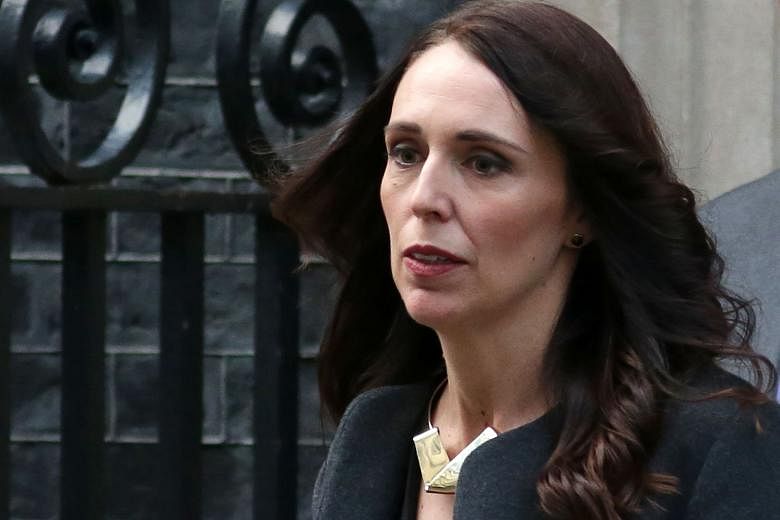WELLINGTON • On Sunday, an Air New Zealand plane bound for Shanghai abruptly turned around in circumstances that remain unclear.
Days later, the launch of a much-promoted tourism initiative planned between China and New Zealand was cancelled, purportedly because of scheduling issues for Beijing, despite having been planned for years.
The incidents have raised concerns that New Zealand is the latest target of Beijing's scorn, a worrying prospect for a country that relies on China for NZ$15.3 billion (S$14.2 billion) of its export trade, the most goods that it sends to any country.
New Zealand Prime Minister Jacinda Ardern on Wednesday admitted challenges in her country's relationship with China, but denied those ties were deteriorating.
Her remarks came in response to claims by commentators and her political opponents that New Zealand was experiencing retaliation because it had joined other Western nations in taking a tough stance against Chinese technology company Huawei.
"The perception in Beijing is that New Zealand now has uncharacteristically joined the United States in containing China by trying to contain its technology companies - and they are prepared to retaliate," said Mr David Mahon, a New Zealand businessman who runs investment management firm Mahon China and has lived in Beijing for 34 years. He added that long-time suppliers of fresh New Zealand products to China had already faced "non-tariff impediments" at Chinese ports.
Amid the growing tensions, Huawei has begun an advertising campaign in New Zealand in which it appeals to the public over the government's ban on having it supply technology for the country's fifth-generation, or 5G, mobile data network.
Spark, New Zealand's largest telecommunications provider, announced last November that it would join the ranks of countries blocking the use of Huawei equipment in its 5G roll-out, citing intelligence agency advice that the use of that equipment would present "significant national security risks".
The full-page advertisements, which started running on Wednesday in New Zealand's two largest newspapers, said that 5G without Huawei was "like rugby without New Zealand", referring to the country's domination of the sport internationally.
Analysts suggested the Huawei decision might have prompted the cancellation of the tourism event, as well as Ms Ardern's apparent inability to schedule a visit to China, planned since late last year.
The Huawei ban came as a "shock" to Beijing, said Mr Mahon, adding that New Zealand's reputation as an independent voice on the world stage was being eroded by its alignment with the US over the ban, as well as its tougher language on China's actions in the Pacific and South China Sea.
"Either we have changed our view and we want to be much closer to Washington, or this is a series of misadventures, mistakes and misunderstandings," said Mr Mahon.
Mr Rodney Jones, a New Zealand economist who recently returned to Auckland from Beijing after spending 30 years in Asia, said such concerns were "way overwrought".
"We can overstate the importance of a political relationship," he said, adding that even though Australia had "spent 2018 in the diplomatic doghouse" with Beijing, "exports to China last year grew".
NYTIMES

